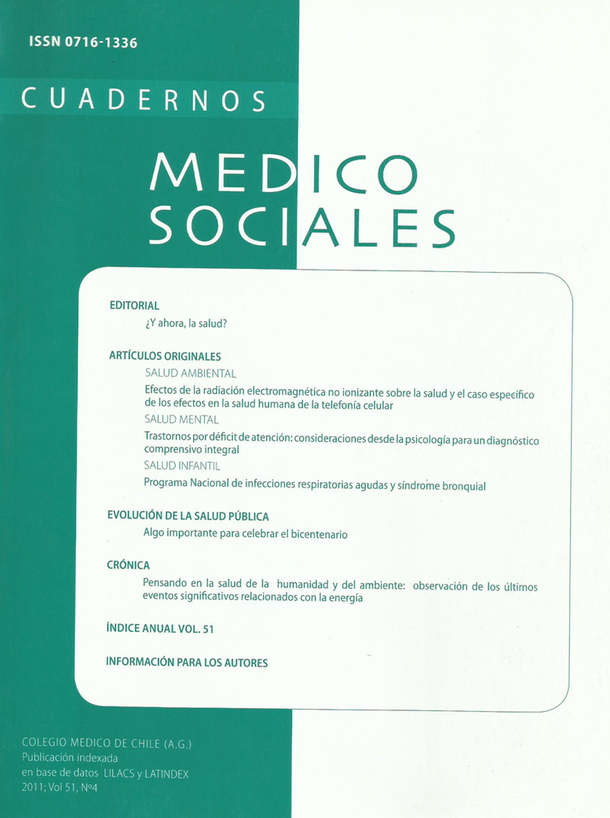Attention Deficit Disorder: Considerations from Psychology for an Integral Comprehensive Diagnosis
Keywords:
Attention Deficit Hyperactivity Disorder, diagnosis, differential diagnosis, child psychology, mental healthAbstract
This study reviews the diagnosis of attention deficit disorder in children, in relation to its prevalence (8% to 12% of school-age children), which makes it one of the main reasons for consultation in Chile. The article seeks to integrate the contributions of the medical and psychological points of view in the diagnosis, allowing the outline of treatment guidelines that take into account the context and the particularity of each subject. We describe the diagnostic criteria and the implications of this diagnosis in the area of mental health, education, family and society. We then approach the discussion from the psychology, underlining the lack of attention as a symptom of various emotional childhood disorders, observing that from the medical model this symptom is generally reduced to a neurobiological disorder and leads to an exclusively pharmacological treatment. We estimate that no consideration from the paradigm of the complexity and causality in the diagnosis, excludes the development of socio-affective areas of the child which can be critical in the generation and maintenance of the disorder. We finally propose deliverance of a wider look in the diagnosis of ADD, considering subjective aspects through the articulation of the medical assessment with a psychological evaluation. This would allow a full clinical diagnosis and an integrated comprehensive approach.
Downloads
Downloads
Published
How to Cite
Issue
Section
License

This work is licensed under a Creative Commons Attribution-NonCommercial-ShareAlike 4.0 International License.


